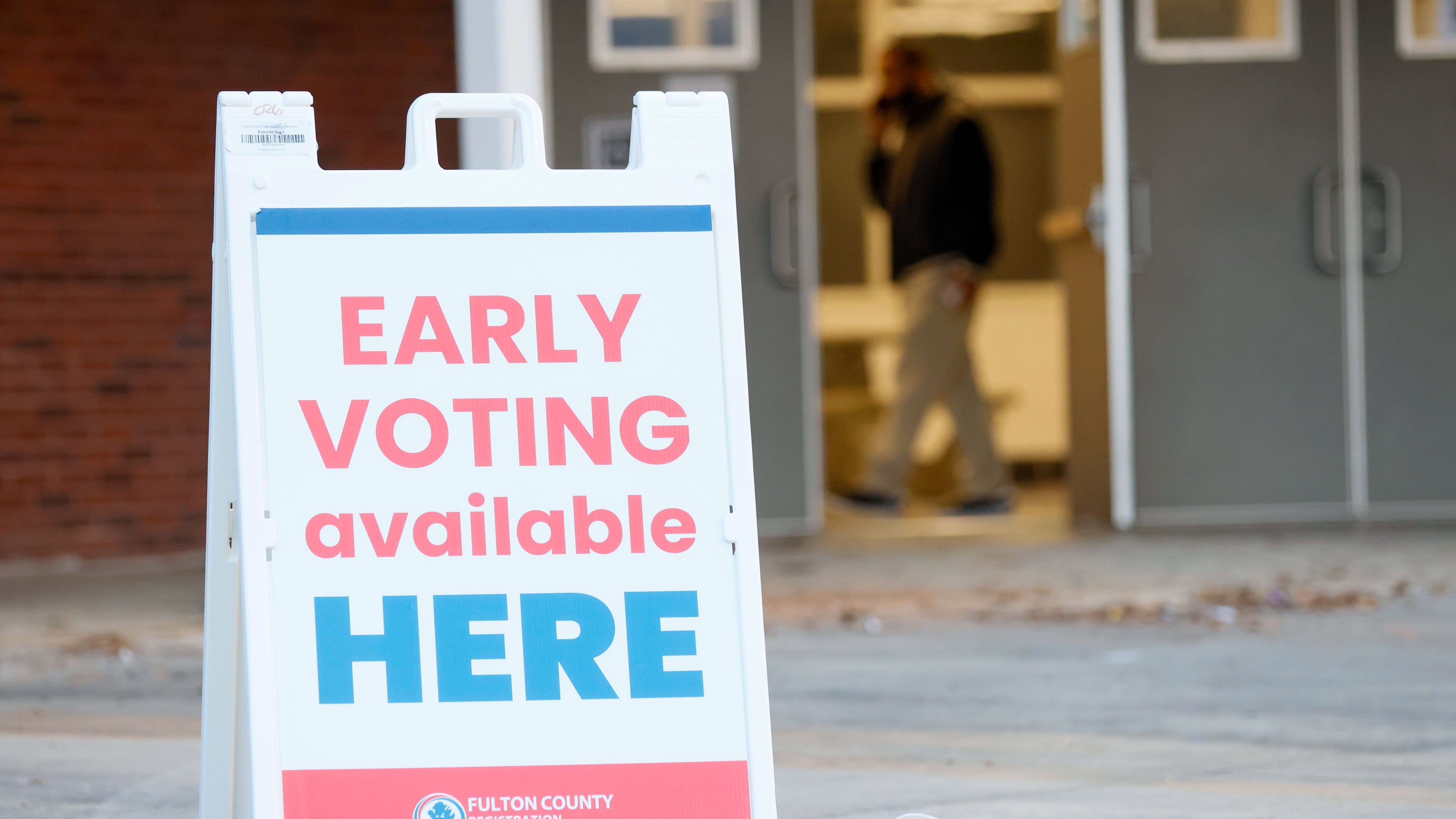How to take on Trump? Georgia Democrats face the test in governor’s race.

COLUMBUS — At back-to-back stops in his hometown, state Sen. Jason Esteves hardly mentioned Donald Trump by name. But when he did, he laced into the president and his Republican allies in Georgia.
He slammed the federal tax-and-spending package Trump signed as a “big, ugly bill” that will gut Georgia health care programs. He accused the White House of “slow-walking” disaster relief to devastated farmers. And he ripped Gov. Brian Kemp for aligning with a president who once swore to destroy him.
“To the extent that he has said anything,” Esteves told a few dozen supporters at a Columbus eatery, “he has cheer-led the president because he believes that blowing up President Trump’s ego will somehow give the state a benefit.”
Democrats are struggling to find the right pitch in Trump’s second term, with some embracing full-throated confrontation and others opting for a more tempered approach. Nowhere is that clearer than in the race for Georgia governor, where Esteves and the rest of the fast-growing Democratic field are testing divergent strategies.

Former Atlanta Mayor Keisha Lance Bottoms and state Rep. Derrick Jackson are taking a guns-blazing approach, with social media posts and public statements regularly excoriating the president. This week, Bottoms echoed the party’s 2024 refrain against Trump, vowing that “we will not go backward” on her watch.
Ex-DeKalb chief executive Michael Thurmond is drawing on his decades-long reputation as a centrist, pitching himself as the kind of consensus-builder who can bridge the divide between liberals and conservatives to tackle Georgia’s most glaring problems.
And Esteves promises to counter Trump-fueled “chaos,” while courting former Trump voters and other middle-of-the-road Georgians. He’s trying to offer a pragmatic message focusing heavily on kitchen-table issues, such as a proposed $1 billion small-business fund he outlined to applause in Columbus.
‘All Georgians’
But unlike the last two election cycles — when Stacey Abrams dominated the party’s primary contests — Democrats have no clear frontrunner in the 2026 race for governor. The uncertainty is nudging others to test their own paths.
State Rep. Ruwa Romman is exploring a bid focused on working-class families, with a progressive agenda likely to include calls to boost social services, reopen shuttered hospitals, raise the minimum wage and “fight for the people and not the corporations and billionaires.”
“Of course, the political realities will make pursuing these goals hard, but isn’t Georgia worth trying for?” the Gwinnett lawmaker said. “Isn’t it time to imagine what could be instead of insisting that what currently exists is the only possibility?”
And then there is former Lt. Gov. Geoff Duncan, whose potential candidacy is perhaps the most surprising.
A longtime Republican loyalist, he once supported abortion limits, gun rights expansions and other conservative priorities. But his break with Trump over false claims of election fraud in 2020 set him on a path that led to his 2024 endorsement of Vice President Kamala Harris.
Now, he’s inching toward a run as a Democratic big-tent candidate who said he would embody Georgia’s motto of wisdom, justice and moderation over what he casts as a dreary alternative vision of “Governor Donald Trump.”

“As we look at how we elect our next governor in Georgia, I think we’ve got to find somebody who’s willing to invest in all Georgians,” he said.
His challenges are steep. In a race dominated by left-leaning voters, Duncan would have to significantly expand the primary electorate to win the nod. But with a national profile and a history of confronting Trump, Duncan’s potential rivals are taking him seriously — and already sharpening their critiques.
“Voters are not going to forget he was the lieutenant governor when some of the worst bills that Republicans have passed in the last decade,” Esteves said in an interview. “And he’s going to have to answer and be held accountable.”
‘Battle-tested’
Republicans, of course, face their own Trump-driven dynamics. Lt. Gov. Burt Jones got an early boost from the president’s endorsement. Attorney General Chris Carr is trying to build an edge with more mainstream voters while also appealing to the GOP base. And Secretary of State Brad Raffensperger could enter the race with a record of winning crossover support — and a well-documented history of feuding with Trump and his loyalists.
For Democrats, the contest reflects a broader national dynamic. The party is still smarting from 2024 losses in Georgia and other battleground states. Nearly seven months into Trump’s presidency they are searching for ways to respond to MAGA politics and address worsening economic anxieties. Trump has lost Georgia once but carried it twice over the last three cycles, including a roughly 115,000-vote victory last year.
To capture Georgia’s top job for the first time in nearly three decades, Democrats know they must walk a fine line: harness the anger of a primary electorate eager for confrontation while also appealing to swing voters who proved decisive in the last three statewide contests.

U.S. Sen. Jon Ossoff offers a model of that balancing act. He’s waging his reelection campaign as both an anti-Trump firebrand — he said recently he would support the president’s impeachment — and a coalition-builder with a record of working across party lines. Yet he has enormous advantages as an incumbent: a massive war chest, national stature and no serious primary opposition. Barring a seismic upheaval, next year’s primary will be a coronation for him.
The governor’s race is another matter. Some Democrats worry the crowded field will yield a bruising primary that weakens the eventual nominee. Others see it differently.
“I’m glad that there’s competition,” said Democratic state Rep. Scott Holcomb, who isn’t taking sides yet in the race. “No one is taking the race for granted, and candidates are out there working hard, connecting with voters and sharing their policy ideas. The nominee will be battle-tested and ready for the general election.”
For voters, the field means more options than the Abrams-driven cycles of 2018 and 2022. Shikha Shah, a Columbus physician, nodded along with Esteves’ speech, praising his call for robust incentives for small entrepreneurs. But she said she’s still undecided.
“The field isn’t settled yet. I want to see what they all have to offer,” she said. “My number one issue is whether they’re going to do what they actually say they’re going to do. I’m still looking for the candidate who can do that.”



